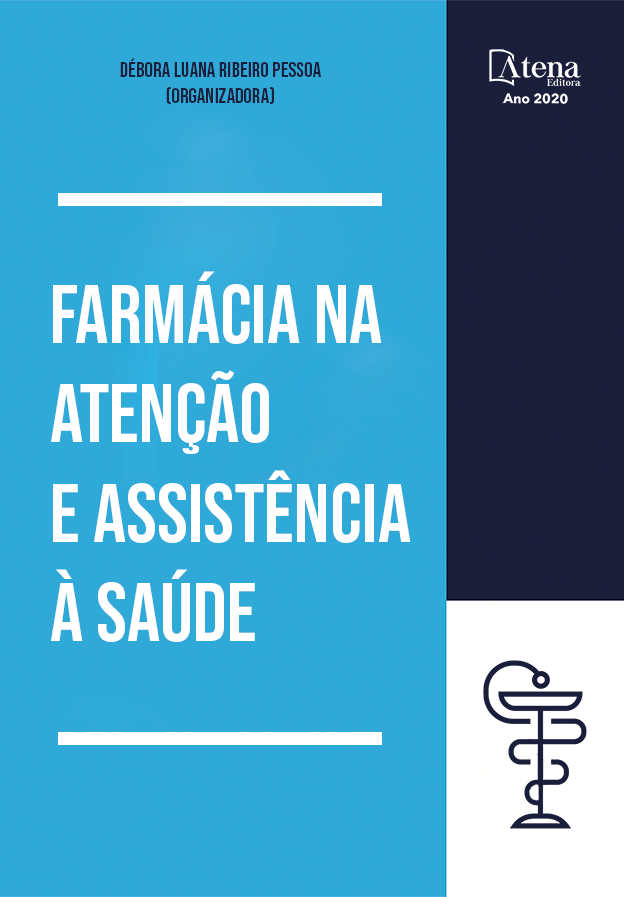
Prescrição Farmacêutica com ênfase na dispensação e acompanhamento farmacoterapêutico: Uma revisão.
As ações de saúde que envolve assistência farmacêutica fazem parte do direito da população, mediante legislação em vigor. Isso se aplica à necessidade de inclusão da sociedade dentro dos parâmetros de responsabilidade em ofertar serviços de saúde de qualidade, ampliando para outros profissionais da saúde o ato de prescrição, bem como redução de gastos e racionalização de medicamentos. Com tudo isso, a prática da prescrição medicamentosa foi disponibilizada aos farmacêuticos mediante as RDC 585/2013 e 586/2013 do Conselho Federal de Farmácia. O objetivo principal deste estudo é analisar as ações e intervenções farmacêuticas que podem garantir qualidade na prescrição e eficácia no tratamento farmacoterapêutico. A pesquisa foi idealizada e realizada mediante revisão bibliográfica, fundamentada em trabalhos disponibilizados em bases eletrônicas dentro do período de 2001 a 2019, de acordo com o levantamento de informações focadas na atuação do farmacêutico enquanto prescritor e quais benefícios que essas práticas trazem aos pacientes. Diante dos resultados evidencia-se que, essas práticas de prescrição farmacêutica no Brasil, mesmo que regulamentada e autorizada, enfrentam desafios e algumas limitações, pois maioria da população não reconhece esta prática como atribuição do farmacêutico. E, outros profissionais de classes diferentes ainda enxergam tal atuação de maneira negativa. Mas, é necessário enfatizar que o farmacêutico deve estar capacitado para realizar tais funções, pois só ocorrerá se o profissional atender a todos os princípios éticos segundo a legislação. Dessa forma, o presente estudo traz a reflexão relacionando a prescrição farmacêutica e a dispensação racional de medicamentos, dentro das Boas Práticas de Prescrição, e faz uma análise crítica desta atribuição tanto no presente como no futuro. Por fim, são dadas as considerações sobre a importância do farmacêutico em assumir esta responsabilidade de prescritor, agregando benefícios à equipe multiprofissional, em favor do reestabelecimento da saúde do paciente.
Prescrição Farmacêutica com ênfase na dispensação e acompanhamento farmacoterapêutico: Uma revisão.
-
DOI: 10.22533/at.ed.7202015129
-
Palavras-chave: Farmacêutico, uso racional, medicamento.
-
Keywords: Pharmacist, rational use, medicine.
-
Abstract:
Health actions involving pharmaceutical assistance are part of the population's right, through legislation in force. This applies to the need for the inclusion of society within the parameters of responsibility in offering quality health services, expanding the act of prescription to other health professionals, as well as reducing costs and rationalizing medicines. With all this, the practice of drug prescription was made available to pharmacists through RDC 585/2013 and 586/2013 of the Federal Pharmacy Council. The main objective of this study is to analyze the pharmaceutical actions and interventions that can guarantee quality in the prescription and effectiveness in the pharmacotherapeutic treatment. The research was conceived and carried out through a bibliographic review, based on works made available on electronic bases within the period from 2001 to 2019, according to the survey of information focused on the pharmacist's performance as a prescriber and what benefits these practices bring to patients. In view of the results, it is evident that these pharmaceutical prescription practices in Brazil, even if regulated and authorized, face challenges and some limitations, since the majority of the population does not recognize this practice as the pharmacist's attribution. And, other professionals from different classes still see this performance in a negative way. But, it is necessary to emphasize that the pharmacist must be qualified to perform such functions, as it will only occur if the professional meets all ethical principles according to the legislation. Thereby, this study brings the reflection relating to pharmaceutical prescription and rational drug dispensation, within the Prescription Good Practices, and makes a critical analysis of this attribution in the present and in the future. Finally, considerations are given about the importance of the pharmacist in assuming this responsibility as a prescriber, adding benefits to the multiprofessional team, in favor of restoring the patient's health.
-
Número de páginas: 15
- Tibério César Lima de Vasconcelos
- Lavínia Adelina da Silva


